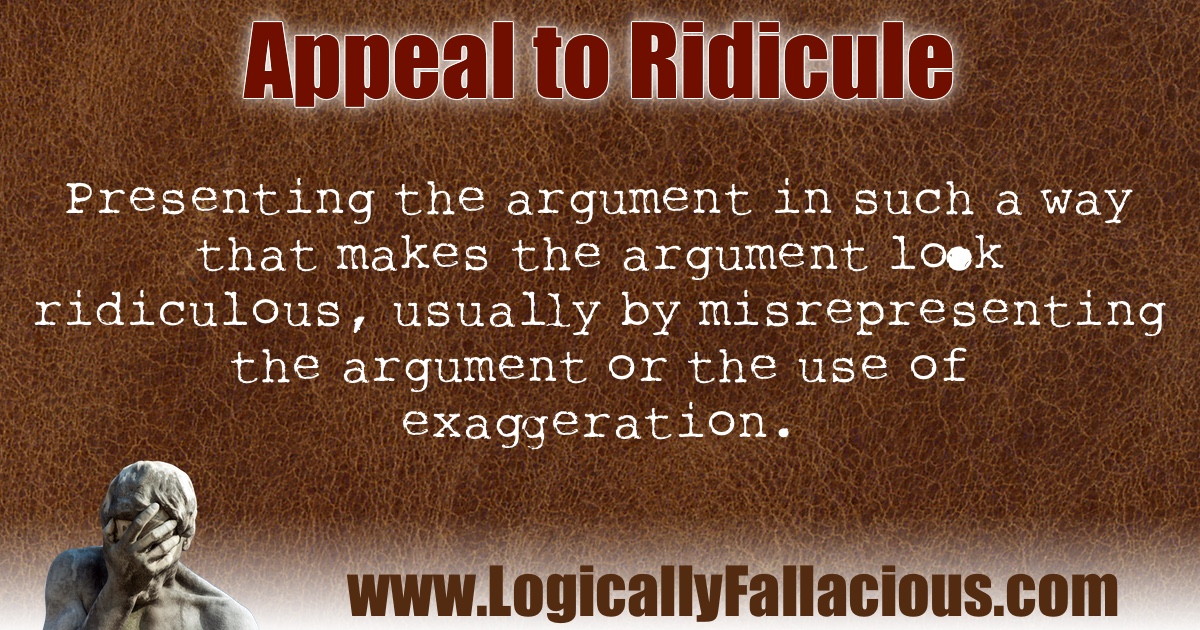reductio ad ridiculum
(also known as: appeal to mockery, the horse laugh)
Description: Presenting the argument in such a way that makes the argument look ridiculous, usually by misrepresenting the argument or the use of exaggeration.
Logical Form:
Person 1 claims that X is true.
Person 2 makes X look ridiculous by misrepresenting X.
Therefore, X is false.
Example #1:
It takes faith to believe in God just like it takes faith to believe in the Easter Bunny -- but at least the Easter Bunny is based on a creature that actually exists!
Explanation: Comparing the belief in God to belief in the Easter Bunny is an attempt at ridicule and not a good argument. In fact, this type of fallacy usually shows desperation in the one committing the fallacy.
Example #2:
Evolution is the idea that humans come from pond scum.
Explanation: It is ridiculous to think that we come from pond scum, and it is not true. It is more accurate to say that we come from exploding stars as every atom in our bodies was once in a star. By creating a ridiculous and misleading image, the truth claim of the argument is overlooked.
Exception: It is legitimate to use ridicule when a position is worthy of ridicule. This is a risky proposition, however, because of the subjectiveness of what kind of argument is actually ridicule worthy. As we have seen, misplaced ridicule can appear as a sign of desperation, but carefully placed ridicule can be a witty move that can work logically and win over an audience emotionally, as well.
Matt: You close-minded fool! Seeing isn’t believing, believing is seeing!
Cindy: Does that go for the Easter Bunny as well, or just the imaginary beings of your choice?
Tip: Do your best to maintain your composure when someone commits this fallacy at your expense. Remember, they are the ones who have committed the error in reasoning. Tactfully point it out to them.
